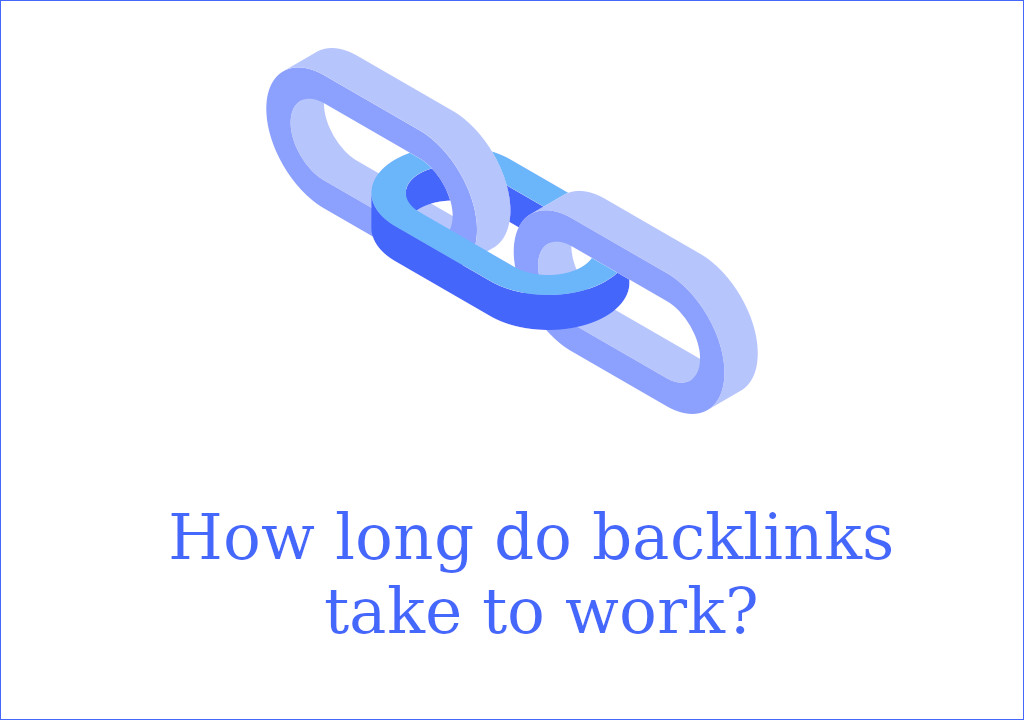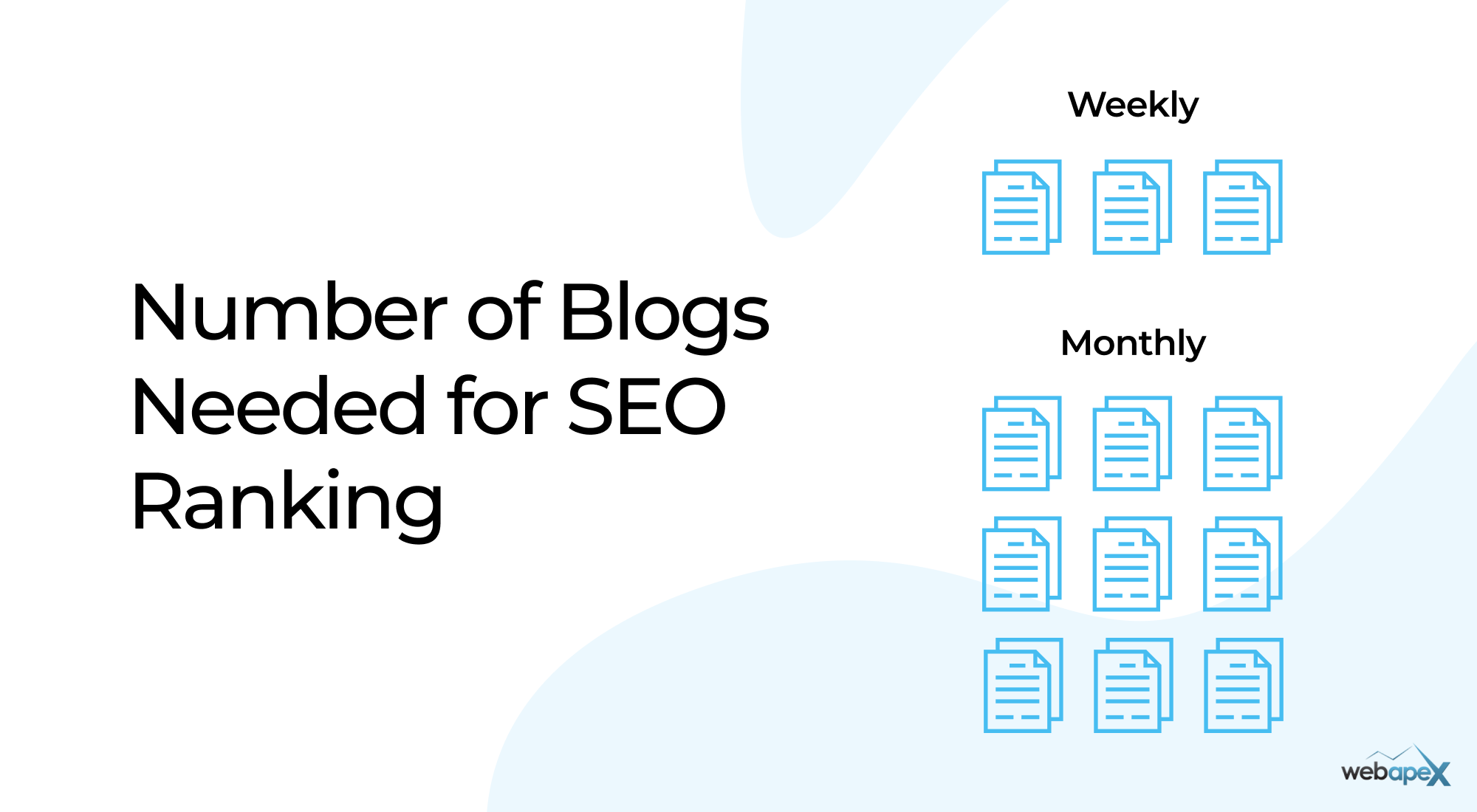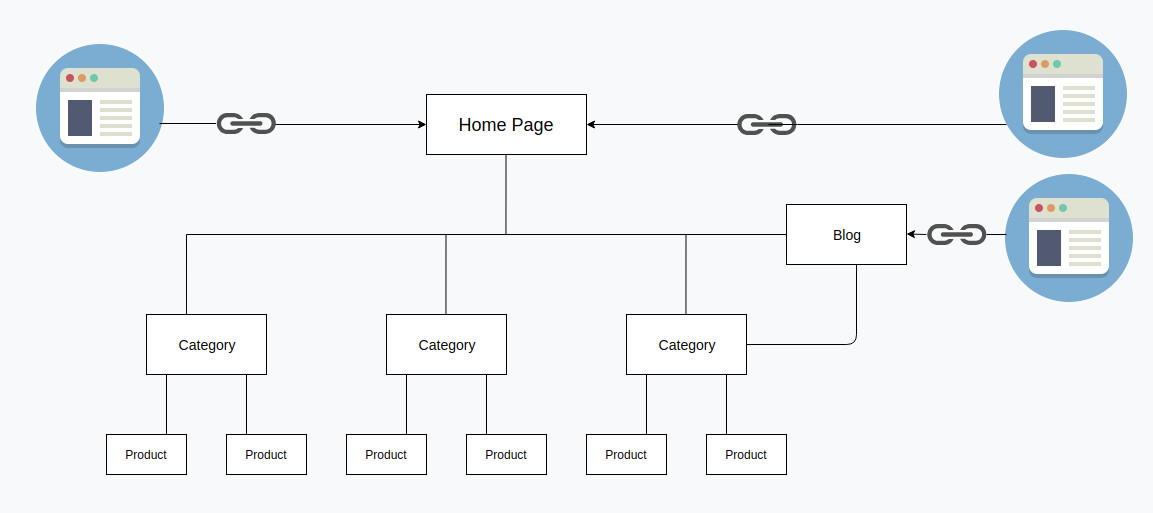Have you been working hard on SEO but still not seeing top rankings? Are you wondering about how long SEO may take to rank?
Well, if you’ve been asking this question, then you’re not alone! Everyone wants results from SEO sooner rather than later to boost their organic traffic.
In this blog, you will learn in detail about SEO ranking timing and ways to speed the ranking process.
Table of contents:
- How long does SEO take to work?
- Why does SEO take time?
- What factors influence the SEO ranking timeline?
- SEO monthly timeline – Infographics
- Month 1: General Analysis
- Month 2: SEO Planning and Implementation
- Month 3: Continued SEO Implementation
- Month 4: Strengthened SEO Implementation
- Month 5: Creation of Linkable Assets
- Month 6: Review and Re-Analysis
- Month 7: Ongoing SEO Efforts
- Month 8: Ongoing SEO Efforts
- Month 9: Re-assessment of Rankings
- Month 10: Monitoring Rankings
- Month 11: Ongoing SEO Efforts
- Month 12: Expectation of Positive Rankings
- How to speed up SEO results?
- How long do backlinks take to work?
- FAQs
How long does SEO take to work?
SEO typically takes 6 months to 1 year to show results, and for some, it can take even longer. In a highly competitive niche, it can even take 1-2 years or more to see a significant difference in ranking. This is because Google looks into a bunch of factors to determine your ranking. This journey involves continuous optimisation, content updates, and building a strong backlink profile.

Remember, SEO is not a one-time effort but an ongoing process that requires dedication and adaptability, so it is better if you work with a trusted SEO consultant to ensure efficient results without much waste of time or resources.
This initial phase involves setting up your groundwork, such as keyword research, technical SEO, creating valuable content, and building backlinks. Content and backlinks boost SEO by enhancing your site’s credibility and signalling to search engines that your site is trustworthy and authoritative.
Caution: If someone says you can achieve results with SEO in a month, you are set up for disappointment. Avoid guaranteed SEO and short-term ranking promises.
Why does SEO take time?
But why does SEO take too much time, unlike other marketing channels?
SEO is like nurturing a garden. You plant seeds today and with proper care, you’ll see them bloom in the future. The SEO process involves several steps that take time to mature and take effect.
It’s not like PPC campaigns where you set a budget and start running; it needs careful planning and continuous optimisation and analytics.
Google takes time to crawl and index your website, and you must also remember that there are competitors with thousands of similar web pages. So, Google needs to determine whether your website is the best for the related keyword and this can only happen by adjusting various factors, such as optimising your website architecture, creating high-quality content, acquiring backlinks, and more.
What factors influence the SEO ranking timeline?
In simple terms, the level of competition, your content quality, backlinks and overall website quality are the main SEO ranking factors that influence the ranking.
Let’s understand them a little more.
Quality content
There’s no doubt that you need to produce quality content for SEO to work. Many website owners tend to take shortcuts and produce generic ordinary content using AI or other means and express their concern about not getting the SEO results.
You need to make sure you are producing quality content that covers every little detail most compellingly to satisfy the user intent. If you are writing blogs, then make sure each blog is well-written and structured and has a good word count to cover the topic well. Add visuals and images to make the content more engaging and make your content easier to digest.
It’s best to hire a professional copywriter to produce quality content to improve your SEO rankings. Visit our SEO copywriting checklist page to learn more.
Content frequency & modification
Now there’s always a question of “How many blogs should I post daily/weekly to get SEO results?”
Uploading regular quality content helps since Google understands that your website is active and is a good source for quality content. But you must always remember, that quality is better than quantity. It doesn’t matter whether you produce 4 blogs a month or 40 blogs a month. You need to ensure that every blog satisfies the user intent and has a compelling message.
If you have older blogs, you can try modifying existing ones to make them more relevant instead of pumping out new thin blogs. This can increase traffic to your old blogs and produce more linking opportunities to blogs you have already covered.
Crawling & indexing
Your website doesn’t automatically show up on Google once it’s uploaded – Google needs to crawl and index your website first and then it ranks based on other factors.
Google uses Googlebots, or “crawlers”, to search through their massive database of websites and then index your website in the SERPs based on the user query. So setting up your website for proper crawlability is important to help it rank faster for SEO.
One of the best ways to boost your pages to index fast is by maintaining a highly authoritative website.

Google prioritises high-quality, relevant content that provides value to users. Regularly publishing well-researched, engaging content helps improve your indexing and ranking.
Boosting website authority for indexing is a time-consuming and expensive exercise and hence it impacts the SEO ranking time. But if done well the reward can be exceptional.
Backlinks
Backlinks are links that you get from other sites for your website. It’s like a thumbs up from other sites stating your website is a good source for their content. And this is the most crucial thing to speed up SEO results.
High-quality backlinks from authoritative sites can speed up your SEO efforts. The more relevant and high-quality backlinks you acquire, the quicker you can improve your rankings. Learn more about how long backlinks take to work below.
However, obtaining these backlinks takes time and that is why SEO is a long-term strategy and it takes time.
Competition in your niche
Competition is also a big factor when it comes to how long SEO takes to work. In highly competitive niches, it takes longer to rank because many established players are already vying for the same keywords. Conversely, in less competitive markets, you might see results more quickly.
You must adjust your SEO strategy based on the competition in your niche. If you are in a niche with high-level players, try building relationships with link providers and acquiring more authority backlinks. Try targeting for specific, long-tail keywords to narrow down your competition.
The best way to stand out among the crowd is to regularly produce high-quality content. Most businesses tend to produce generic content that just has a bunch of keywords, but you should think differently. This can speed up your SEO results even in the most competitive niches.
Technical SEO
Technical SEO refers to optimizing the infrastructure of your website to help search engines crawl and index your content more efficiently. It focuses on the non-content elements of your site, ensuring that your website is built in a way that improves user experience, enhances performance, and supports your SEO strategy.
The technical health of your website plays a crucial role in SEO success. The technical factors of your site that impact SEO ranking time are:
- Page Speed
- Mobile-Friendliness
- HTTPS/SSL
- Structured Data (Schema Markup)
- Canonicalisation
- URL Structure
- Internal Linking
Regular technical audits and optimisations can significantly shorten the time it takes to see SEO results.
EEAT Principle
Align your SEO strategy with Google’s EEAT(Experience-Expertise-Authority-Trust) principle to speed up the ranking process.
These are the key factors that Google considers in a website to determine its quality. A detailed explanation of these principles is given below:
Experience
Websites that demonstrate real-world experience and user interaction tend to rank higher.
Example:
Let’s say you are a shoe retailer online and you have a blog about the best shoes for running. Instead of talking about consider xyz brands for runners. If you would talk about your real usage of specific shoes with their pros and cons that will demonstrate the real experience.
In the age of AI where things are moving fast there is no replacement of real user experience.
Any page or blog with real user experience tends to resonate with users resulting in higher engagement, and positive user experience resulting in SEO ranking.
So, produce content with experience to speed up the ranking time.
Expertise
Google favours content or websites that demonstrate deep knowledge and expertise. Expertise can be demonstrated in the form of a degree or certificate on the author/bio page.
User Generated Content (UGC) like ideas, reviews, and feedback with expertise can also signal it better.
To demonstrate expertise, include author bios that highlight credentials, professional qualifications, and experience in the industry. Additionally, ensure that your content is well-researched, accurately cited, and thoroughly reviewed by subject matter experts.
Authority
Older websites with established authority generally rank faster compared to new ones. Google trusts sites that have been around longer and have built up a solid reputation. If your website is new, expect a longer timeline as it takes time to build this trust and authority.
One of the keys to boosting authority is building content with a holistic coverage of a topic or subject.
Trust
Trust is everything, even for SEO. You can build trust in your website by maintaining a secure website, providing accurate and transparent information, and having clear policies.
Ensuring your site is user-friendly, with clear contact information and positive user reviews, can also boost trust. Google rewards websites that it perceives as safe and reliable for users.
Example: Having street addresses, phone numbers and emails of various departments, people in the business with team page etc.
SEO monthly timeline [Infographics]
Month 1: General Analysis
- Understanding the website structure and foundation
- Conducting content analysis
- Performing a technical SEO check
- Checking backlink health
- Assessing current traffic and setting expectations
- Analysing general competition
Month 2: SEO Planning and Implementation
- Implementing website and URL structure changes
- Setting up analytics and tagging
- Planning the content strategy
- Beginning to merge or delete thin/duplicate content
Month 3: Continued SEO Implementation
- Addressing website performance issues
- Implementing mobile-first changes
- Executing the content strategy
- Initiating the internal linking strategy
Month 4: Strengthened SEO Implementation
- Finalising thin or duplicate content issues
- Starting to add quality content
- Beginning the link-building strategy
Month 5: Creation of Linkable Assets
- Developing linkable content assets
- Starting internal links to business pages
Month 6: Review and Re-Analysis
- Ranking changes expected
Month 7: Ongoing SEO Efforts
- Maintaining website health
- Planning content frequency
- Assessing and analysing ranking changes
- Continuing to develop linkable content assets
Month 8: Ongoing SEO Efforts
- Re-assessing overall keyword rankings
- Continuing the established SEO journey
Month 9: Re-assessment of Rankings
- Re-assess overall keyword rankings
- Continue the established process
Month 10: Monitoring Rankings
- Ensuring business pages are ranking by now
- Continuing efforts to boost the rankings
Month 11: Ongoing SEO Efforts
- Expecting some natural links to start appearing
- Continuing to execute the SEO processes
Month 12: Expectation of Positive Rankings
- Positive ranking results expected
- Analysing ranking data
- Documenting changes in rankings
- Reporting positive ranking outcomes to the client
- Continuing to follow the established SEO processes

How to speed up SEO results?
The above section of “How long does SEO take to work” mostly points out the key points to work on to achieve the desired results concerning time.
Even though getting results from SEO takes time, you can follow some steps to speed up the process.
Achieving quick results with SEO is challenging, but not impossible. While you can’t expect the instant impact of how ads perform, results can be seen sooner rather than later with aggressive planning and consistent implementation!
We are going to highlight them with a very specific To-Do task list to achieve faster ranking.
Website architecture
The website architecture is like a blueprint of your website. It’s the way your site is structured with different links and pages in a hierarchical order for easy navigation.
A well-optimised site architecture can do wonders; it helps Google to easily identify webpages and index them properly. This can help with reaching the right customers and improving the user experience, thereby reducing the time it takes for SEO to work.
Make sure you have a user-friendly website architecture to ensure faster indexing and a positive user experience to speed up the SEO ranking time.
Consider the list below:
- Use a well-organised navigation menu
- Setup breadcrumbs
- Make sure your pages are no more than 2 clicks deep
- Set up a good internal linking framework
Fix technical SEO issues with speed
Start by addressing technical issues like broken links, slow load times, and poor navigation. According to a study by Statista, 58.67% of all website traffic worldwide comes from mobile phones. To ensure your website is mobile-friendly since a significant portion of the traffic comes from mobile devices.
You can use tools like Google PageSpeed Insights to help identify areas for improvement.
Build a team with dedicated responsibilities
SEO is not a one-person job. Assemble a team with specific roles to cover all aspects of SEO.
An SEO planner can strategise and monitor the overall progress. Content writers focus on creating engaging and optimised content. Media producers handle visual elements like videos and infographics, while publishers ensure the content is distributed effectively.
This division of labour ensures that each aspect of your SEO strategy is handled by an expert, making your efforts more efficient and impactful.
Produce quality content with speed
Content is king in the SEO world. You must regularly produce high-quality content for SEO, this is one of the best ways to speed up the SEO process.
Focus on creating content that answers your audience’s questions and provides value. This not only helps in ranking better but also in building trust and authority. Use keyword research tools to find trending topics and target keywords.
You must aim for a mix of long-form content and smaller, timely pieces to keep your site dynamic and engaging.
Target selective categories or keywords
Instead of spreading your efforts too thin, concentrate on specific categories or keywords. Identify low-competition keywords that can bring in targeted traffic and gradually build your authority in those areas.
14.1% of all keywords are phrased as a question, so try creating informative content around question keywords to draw in relevant traffic according to Backlinko.
Use tools like Ahrefs or SEMrush to find keyword opportunities. This approach allows you to achieve quicker wins and establish a strong presence in niche areas, which can be expanded over time.
Update selected pages in a targeted manner
You must also regularly update and refresh your content with new information to maintain its relevance and effectiveness. Google actively looks for fresh pieces of content and their relevancy, so if your website is active with relevant pages, it helps your ranking.
Additionally, look for high-performing pages and take them to the next level with new information, improved visuals, and more. This not only helps in retaining your rankings but can also improve your position in search results.
How long do backlinks take to work?
Backlinks are essential for boosting your website’s SEO, but their impact isn’t immediate. Generally, you can start to see the effects of backlinks in about 3 months, according to a study by the Search Engine Journal.

However, the timeline can vary based on several factors, including the quality of the backlinks and the frequency of search engine crawls on your site.
The positive effects of backlinks can sometimes be noticed within a few weeks if the links are from highly reputable sources. Conversely, links from less authoritative sites might take longer to influence your rankings.
Moreover, search engines need some time to find and index new backlinks. Google’s crawling and indexing processes play a big role in how quickly those backlinks start to boost your SEO.
Websites that are regularly updated get crawled more often, which means new links get indexed faster. So, keeping your site fresh and active can help speed up the benefits of your new backlinks.
If you ever wonder about SEO ranking timing, remember link building is one of the core elements to boost ranking fast.
How to get backlinks fast and speed up SEO ranking
The top-ranked pages have 3.8 times more backlinks than lower-ranked pages, according to a study by Backlinko.
This means that backlinks are undoubtedly important for your SEO strategies. But the question is: how can I get backlinks fast?
Link-building is one of the most challenging tasks in the SEO process. It’s not just about getting links, you must also build a relationship with the host website and convince them why they must choose your link. The goal is to build a diverse and strong backlink profile that enhances your site’s authority and credibility.
Some techniques to get backlinks fast are:
- Create Linkable Assets: Develop high-value linkable assets such as comprehensive guides, tools, or calculators. These resources are more likely to be linked by others seeking to provide value to their audience.
- Guest Posting: Write high-quality articles for reputable blogs in your niche. This not only helps you gain backlinks but also exposes your content to a broader audience.
- Skyscraper Technique: Find popular content in your niche, create something even better, and reach out to sites linking to the original content to suggest your superior version.
- Resource Page Link Building: Resource pages are a great way to get quality backlinks since they are curated lists of valuable content. Identify these pages in your industry and suggest adding your content to these pages.
- HARO (Help a Reporter Out): Sign up for HARO to receive queries from journalists looking for expert sources. When you provide valuable insights, you can earn backlinks from authoritative media sites.
- Press Releases: Distribute press releases about significant company news to online PR distribution services. When picked up by news outlets, these can provide high-quality backlinks.
Contact Us Today For SEO Services across Australia!
Looking for the best SEO services in Australia? We are here to help!
Our team of Google-certified SEO professionals is here to help optimise your website and drive quality traffic to your business.
You can also use our SEO cost calculator to find out how much your SEO will cost and explore our packages!
FAQs
How long does it take to rank number one (#1) on Google?
Ranking #1 on Google can take 6 months to 2 years or more depending on the level of competition in your niche and SEO effort level. The higher the competition the more time and effort it takes to rank number on Google.
How fast can you rank on SEO?
There’s no really easy way to rank “fast” with SEO like Ads. But if you do aggressive SEO, you can start seeing results even in 4-6 months time. It all comes down to the quality of SEO done with the level of aggression, the competition in your niche, and other factors that are mentioned above.
How long does it take to get good at SEO?
Allow at least 1 year to do good SEO with right foundation. You must have a thorough knowledge of the search engine algorithms, create quality content, and develop good link-building strategies to expect good results from SEO.
How many hours a month should I spend on SEO?
It depends but generally speaking, 30-50 hours a month can be considered as a good start. It all comes down to the size of your website, the SEO strategy, and the competition in your niche.
Does SEO work immediately?
No. But with aggressive SEO work results can be expected faster. Learn more in the above section about how to speed up SEO results.
Does SEO get worse before it gets better?
Not necessarily but in some cases, it can be particularly when the website cleaning/merging/deletion happens to ensure only quality content sites on the website then you can expect some temporary drop.
Why does SEO take 6 months or more?
It’s purely because SEO has many different aspects and they take time to implement and improve. Search engines need time to crawl, index, and evaluate your content. Additionally, factors such as competition, the need for quality backlinks, and ongoing content creation all contribute to the lengthy timeline.
What factors affect the timeline for SEO success?
There are many factors that affect the timeline for SEO success. Website architecture, technical SEO factors, competition, size of your website, content quality, link-building strategies and more are some factors that show how long it takes for SEO to work. You can learn more about the factors that influence the SEO ranking timeline above.
Can SEO results be guaranteed within a specific timeframe?
No. While we can anticipate and expect results within a specific time, there’s no actual guarantee of when the results might occur when it comes to SEO. SEO algorithm changes almost every day and with other elements like your effort and your competition ranking, it simply can’t be guaranteed.
Can SEO results fluctuate over time?
Yes. Even with the best SEO implementation, the ranking can fluctuate. New changes come almost every day and your competition is not stopping to optimise their website hence your ranking can change over time.
How do I know if SEO is working?
You can know if your SEO is working by simply checking the SERPs and seeing if your page or content is ranking for it. A more technical approach would be to check Google Search Console or other tools to see if you have an increase in organic traffic, conversions, CTR, keyword rankings, backlink profile, and more.




